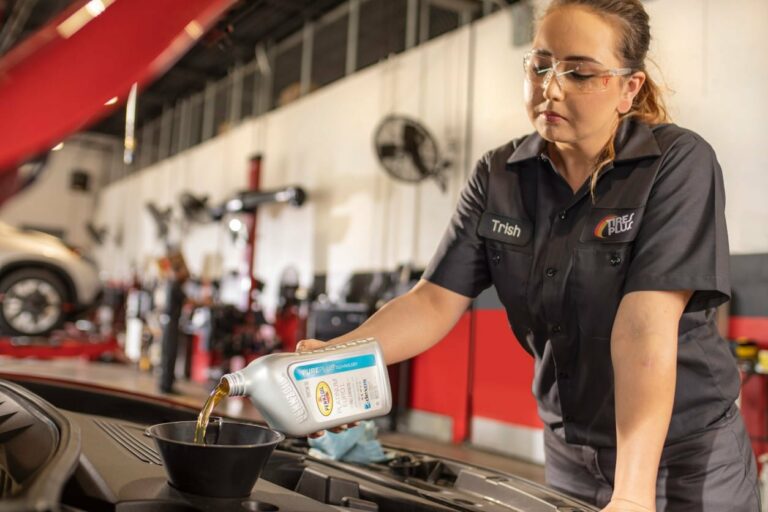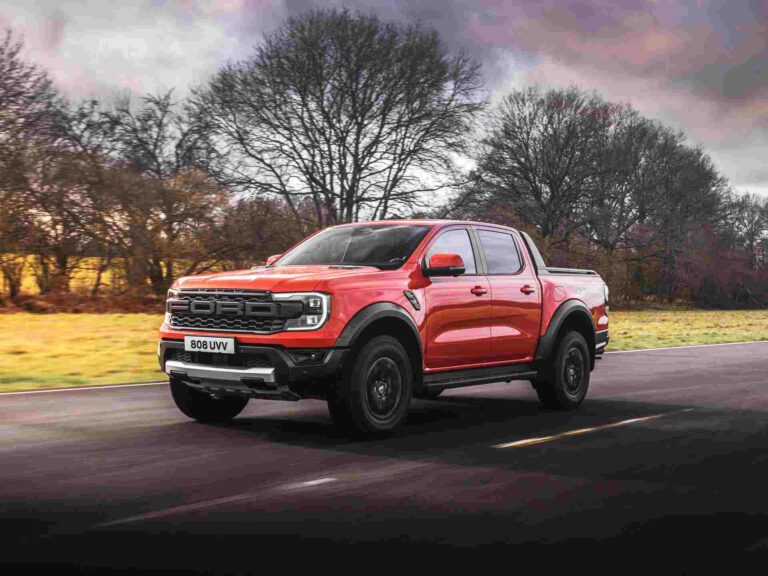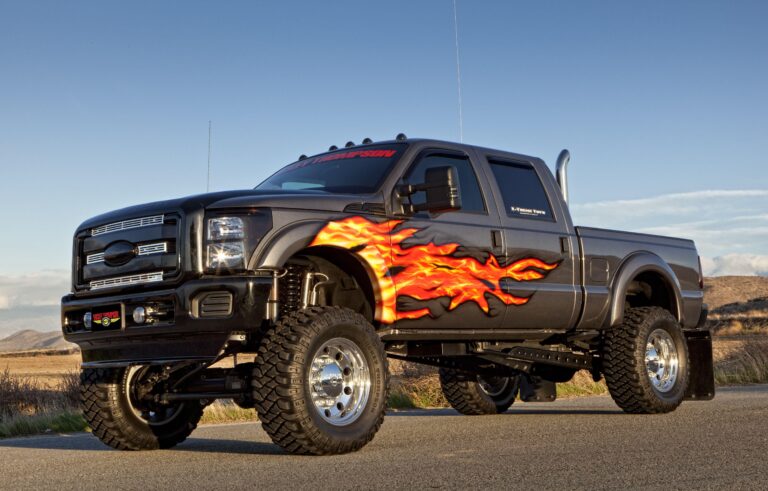Porta Potty Trucks For Sale: Your Comprehensive Guide to Acquiring a Mobile Sanitation Powerhouse
Porta Potty Trucks For Sale: Your Comprehensive Guide to Acquiring a Mobile Sanitation Powerhouse cars.truckstrend.com
In the dynamic world of portable sanitation, the unsung hero is undoubtedly the porta potty truck. More than just a vehicle, it’s the mobile backbone of any successful portable toilet rental business, ensuring hygiene, efficiency, and customer satisfaction across diverse environments, from bustling construction sites and serene outdoor events to emergency response zones. For entrepreneurs looking to enter this essential service industry, or for established companies seeking to expand or upgrade their fleet, understanding the intricacies of "Porta Potty Trucks For Sale" is paramount.
This comprehensive guide will navigate you through everything you need to know about acquiring these specialized vehicles. We’ll explore their vital role, the different types available, crucial features to consider, where to find them, and practical advice to ensure your investment is a sound one.
Porta Potty Trucks For Sale: Your Comprehensive Guide to Acquiring a Mobile Sanitation Powerhouse
Understanding the Porta Potty Service Truck: The Heart of Mobile Sanitation
At its core, a porta potty service truck, also known as a vacuum truck, pump truck, or septic truck, is a highly specialized commercial vehicle designed for the efficient servicing of portable restrooms. Its primary functions include:
- Waste Evacuation: Using a powerful vacuum pump, it suctions waste from the portable toilet’s holding tank into a dedicated waste tank on the truck.
- Freshwater Refilling: It carries a supply of freshwater (often mixed with deodorizers and chemicals) to refill the toilet’s flush tank, ensuring cleanliness and odor control.
- Cleaning and Sanitization: Many trucks are equipped with washdown hoses and nozzles to clean the interior and exterior of the units, promoting hygiene.
- Transport (Optional): Some larger units or specialized trucks may also have the capacity to transport empty portable toilets to and from sites.

These vehicles are engineered for durability, sanitation, and operational efficiency, making them indispensable assets in the portable sanitation industry.
Why Invest in a Porta Potty Truck? The Business Imperative
Acquiring a porta potty truck isn’t just a purchase; it’s a strategic investment with significant implications for your business.

- Starting a Portable Sanitation Business: For new ventures, a reliable service truck is the foundational asset. Without it, you cannot effectively service your rental units, making it impossible to operate.
- Expanding an Existing Fleet: As your business grows, so does the demand for servicing. Additional trucks allow you to take on more clients, cover larger geographical areas, and reduce service times, directly impacting your revenue potential.
- Improved Efficiency and Professionalism: Modern porta potty trucks are designed for speed and ease of operation. This translates to quicker service times per unit, allowing your team to service more toilets in a day, which boosts efficiency and profitability. A well-maintained, professional-looking truck also enhances your company’s image.
- Long-Term Cost-Effectiveness: While the initial investment can be substantial, owning your trucks eliminates the need for third-party servicing, which can be costly and less reliable. Over time, the operational savings and increased service capacity far outweigh the upfront expense.
- Control Over Operations: Owning your fleet gives you complete control over scheduling, service quality, and maintenance, ensuring your standards are consistently met.

Types of Porta Potty Trucks: Finding Your Perfect Match
Porta potty trucks come in various configurations, each suited for different operational scales and budgets.
1. Based on Capacity
- Small (Under 500 Gallons): Ideal for startups, urban environments with tight spaces, or businesses with a smaller number of units. More maneuverable and often built on lighter truck chassis.
- Medium (500-1000 Gallons): The most common size, offering a good balance of capacity and maneuverability. Suitable for growing businesses servicing a moderate number of units daily.
- Large (Over 1000 Gallons): Designed for high-volume operations, large events, or servicing remote locations where frequent trips to a disposal site are impractical. Typically built on heavy-duty truck chassis.
2. Based on Configuration
- Dedicated Chassis Trucks: These are purpose-built vehicles where the vacuum tank and service equipment are permanently mounted onto a truck chassis (e.g., Ford F-Series, Isuzu, Freightliner, Kenworth). They offer stability, durability, and often higher capacities.
- Slide-In Units: These are self-contained vacuum and freshwater tank systems designed to "slide into" the bed of a pickup truck or flatbed. They are a more economical entry point, offering flexibility as the unit can be removed when the truck is needed for other purposes. Ideal for smaller operations or as backup units.
- Trailer-Mounted Units: Similar to slide-ins, these are self-contained units mounted on a trailer. They offer extreme flexibility as they can be towed by various vehicles, but maneuverability can be a challenge in tight spots.
3. New vs. Used Trucks
- New Porta Potty Trucks:
- Pros: Latest technology, full warranty, no prior wear and tear, customizable options, better fuel efficiency (often).
- Cons: Highest upfront cost, longer lead times for custom builds.
- Used Porta Potty Trucks:
- Pros: Significantly lower cost, immediate availability, proven track record (if well-maintained), less depreciation.
- Cons: Potential for unknown mechanical issues, no warranty (or limited), older technology, may require immediate repairs, higher maintenance risks.
Key Components and Features to Look For: A Buyer’s Checklist
When evaluating porta potty trucks for sale, pay close attention to these critical components and features:
- Vacuum Pump: This is the heart of the system. Look for a reputable brand (e.g., Masport, Wallenstein, National Vacuum Equipment – NVE) and consider its Cubic Feet Per Minute (CFM) rating. Higher CFM means faster pumping, crucial for efficiency.
- Waste Tank:
- Material: Steel (durable, heavy), Aluminum (lighter, corrosion-resistant, more expensive), Polyethylene (lightest, corrosion-proof, less durable for large capacities).
- Capacity: Match to your operational needs.
- Features: Internal baffles (prevent sloshing), full-opening rear door (for cleaning), sight glasses (to monitor levels), emergency shut-off valves.
- Freshwater Tank:
- Material: Often poly or aluminum.
- Capacity: Typically 1/3 to 1/4 of the waste tank capacity. Essential for refilling units.
- Hoses and Reels: Durable vacuum hoses (e.g., 2-inch or 3-inch diameter), freshwater hoses, and spring-loaded or hydraulic reels for easy deployment and retraction.
- Washdown System: A separate pump (pressure washer) and nozzle for cleaning unit interiors. Essential for maintaining hygiene standards.
- Toolboxes and Storage: Ample, secure storage for chemicals, tools, gloves, and other service supplies.
- Work Lights: Good lighting is crucial for safe operation during early mornings, evenings, or in dimly lit areas.
- Chassis Condition (for Used Trucks): Thoroughly inspect the truck’s engine, transmission, brakes, tires, suspension, and frame for rust or damage. Check mileage and service records.
- Safety Features: Emergency stop buttons, warning lights, backup cameras, and non-slip surfaces.
Where to Find Porta Potty Trucks For Sale: Your Sourcing Options
Finding the right truck requires knowing where to look.
- Specialized Truck Dealerships: Many commercial truck dealerships specialize in vocational trucks, including vacuum trucks. They often offer new and used options, financing, and maintenance services.
- Direct from Manufacturers: Leading manufacturers like Satellite Industries, John R. Young & Co. (JRY), KeeVac Industries, and Pik Rite often sell direct or through a network of authorized dealers. This is ideal for new, custom-built units.
- Online Marketplaces:
- Commercial Truck-Specific Sites: TruckPaper.com, CommercialTruckTrader.com, and MyLittleSalesman.com are excellent resources for new and used commercial vehicles.
- General Equipment Marketplaces: eBay, Craigslist (use caution), and Facebook Marketplace can yield local finds, though quality varies.
- Auction Sites: Public and private auctions (e.g., Ritchie Bros. Auctioneers, IronPlanet) can offer competitive prices on used equipment, but require careful inspection beforehand.
- Industry-Specific Forums and Classifieds: Websites and publications catering to the portable sanitation industry often have classified sections where businesses sell used equipment.
- Networking with Other Operators: Sometimes, existing portable sanitation companies upgrade their fleets and sell their older, well-maintained trucks directly.
Important Considerations Before Buying: Due Diligence is Key
A significant investment like a porta potty truck demands careful consideration.
- Budget and Financing: Determine your realistic budget. Explore financing options through banks, equipment lenders, or manufacturer financing programs. Remember to factor in insurance, licensing, and initial maintenance costs.
- Business Needs and Projected Growth: Purchase a truck that aligns with your current and anticipated service volume. Buying too small can limit growth, while buying too large can lead to unnecessary expenses.
- Maintenance History (for Used Trucks): Demand comprehensive service records. A well-maintained truck will save you significant headaches and costs down the line.
- Local Regulations and Permits: Understand the Department of Transportation (DOT) regulations, waste disposal requirements, and any specific local permits needed for operating a vacuum truck in your service area. This includes weight limits, hazmat endorsements, and disposal facility access.
- Operator Training: Ensure you or your employees are adequately trained to operate the truck safely and efficiently. This includes understanding the vacuum system, proper waste handling, and emergency procedures.
- Resale Value: Consider the reputation of the manufacturer and the chassis brand. Well-known brands tend to hold their value better.
Tips for a Successful Purchase: Smart Buying Strategies
- Thorough Inspection: For used trucks, never buy sight unseen. Conduct a comprehensive physical inspection, ideally with a qualified mechanic specializing in commercial vehicles and, if possible, a vacuum truck specialist to assess the pump and tank.
- Test Drive: Take the truck for a thorough test drive, paying attention to engine performance, transmission shifting, brakes, and steering.
- Verify Documentation: Ensure the seller has a clear title, complete service records, and any necessary certifications.
- Negotiate: Always negotiate the price, especially for used trucks. Be prepared to walk away if the deal isn’t right.
- Understand Warranty: For new trucks, understand the full terms of the manufacturer’s warranty. For used trucks, inquire if any limited warranty is offered by the dealer.
- Plan for Insurance and Licensing: Factor in the cost of commercial vehicle insurance and obtain all necessary licenses and permits before putting the truck into service.
Challenges and Solutions in Acquiring & Operating Porta Potty Trucks
While essential, owning a porta potty truck comes with its own set of challenges.
- High Upfront Cost:
- Solution: Explore financing options, consider a well-maintained used truck, or start with a more affordable slide-in unit and upgrade as your business grows.
- Maintenance Demands:
- Solution: Implement a rigorous preventative maintenance schedule. Regular oil changes, filter replacements, vacuum pump servicing, and chassis checks will extend the truck’s lifespan and prevent costly breakdowns.
- Finding Skilled Operators:
- Solution: Invest in training for your staff. Offer competitive wages and benefits to attract and retain experienced drivers.
- Environmental Regulations and Waste Disposal:
- Solution: Stay up-to-date with local, state, and federal regulations regarding waste disposal. Establish relationships with approved wastewater treatment facilities. Ensure your truck is always compliant to avoid fines and environmental hazards.
Representative Porta Potty Truck Price Table (Estimates)
Please note: Prices are highly variable based on condition, mileage, features, manufacturer, and market demand. These are general estimates for North American markets.
| Truck Type / Condition | Waste Tank Capacity (Gallons) | Freshwater Tank Capacity (Gallons) | Estimated Price Range (USD) | Key Considerations |
|---|---|---|---|---|
| Used – Basic Slide-In | 100 – 300 | 50 – 100 | $8,000 – $25,000 | Fits into pickup bed; flexible; lower capacity; ideal for startups or small routes; check pump condition. |
| Used – Dedicated Chassis (Small) | 300 – 500 | 100 – 200 | $25,000 – $60,000 | Compact; good for urban areas; check chassis mileage/condition; common entry-level dedicated truck. |
| Used – Dedicated Chassis (Medium) | 500 – 800 | 150 – 300 | $40,000 – $90,000 | Workhorse of many fleets; balance of capacity/maneuverability; thorough mechanical inspection critical. |
| Used – Dedicated Chassis (Large) | 800 – 1500+ | 250 – 500+ | $70,000 – $150,000+ | High volume; typically older models if in this range; verify pump and chassis longevity. |
| New – Basic Slide-In | 100 – 300 | 50 – 100 | $20,000 – $45,000 | Brand new components; warranty; requires your own pickup truck; good for low-volume new businesses. |
| New – Dedicated Chassis (Small) | 300 – 500 | 100 – 200 | $80,000 – $120,000 | Full warranty; modern features; good for growing urban operations. |
| New – Dedicated Chassis (Medium) | 500 – 800 | 150 – 300 | $100,000 – $180,000 | Industry standard; customizable; excellent reliability; long-term investment. |
| New – Dedicated Chassis (Large/Custom) | 800 – 2000+ | 250 – 750+ | $150,000 – $300,000+ | Built to order; high capacity; advanced features; significant capital investment. |
Frequently Asked Questions (FAQ) About Porta Potty Trucks
Q1: What is the typical lifespan of a porta potty truck?
A1: With proper maintenance, a well-built porta potty truck (chassis and vacuum system) can last 15-25 years or even more. The chassis’s engine and transmission life (often 250,000-500,000+ miles for heavy-duty trucks) are key factors, as is the life of the vacuum pump (which can be rebuilt or replaced).
Q2: Do I need a special driver’s license to operate a porta potty truck?
A2: It depends on the truck’s Gross Vehicle Weight Rating (GVWR). Trucks with a GVWR over 26,000 pounds typically require a Commercial Driver’s License (CDL) in the U.S. Some states may also require specific endorsements for tank vehicles or hazardous materials, depending on the interpretation of the waste being hauled. Always check your local Department of Motor Vehicles (DMV) regulations.
Q3: What’s the difference between a vacuum truck and a pump truck?
A3: These terms are often used interchangeably in the portable sanitation industry. Both refer to trucks equipped with a vacuum pump designed to suck up liquid waste. "Vacuum truck" is perhaps more technically accurate, as the system creates a vacuum to draw the waste.
Q4: Can I convert a regular truck into a porta potty truck?
A4: While technically possible, it’s generally not recommended for anything beyond a small slide-in unit on a pickup truck. Converting a standard commercial truck chassis requires significant structural modifications, mounting of heavy tanks, installation of specialized vacuum systems, and adherence to safety and weight distribution regulations. It’s usually more cost-effective and safer to buy a purpose-built or professionally converted truck.
Q5: What kind of ongoing maintenance do porta potty trucks require?
A5: Maintenance includes routine vehicle servicing (oil changes, tire rotations, brake checks), regular cleaning of the tanks, inspection and lubrication of the vacuum pump (and potential rebuilds), hose and reel maintenance, and checking all valves and seals for leaks. Preventative maintenance is crucial to avoid costly breakdowns.
Conclusion: Driving Your Portable Sanitation Success
Investing in a porta potty truck is a pivotal decision for any portable sanitation business. It represents not just a piece of machinery, but the very engine of your operational capability and profitability. By understanding the different types available, meticulously evaluating key features, and conducting thorough due diligence, you can make an informed decision that aligns with your business goals and budget.
Whether you opt for a reliable used model to get started or a state-of-the-art new vehicle for maximum efficiency, the right porta potty truck will empower you to deliver essential sanitation services reliably, professionally, and profitably. With careful planning and a commitment to maintenance, your mobile sanitation powerhouse will serve as a cornerstone of your business success for years to come.





